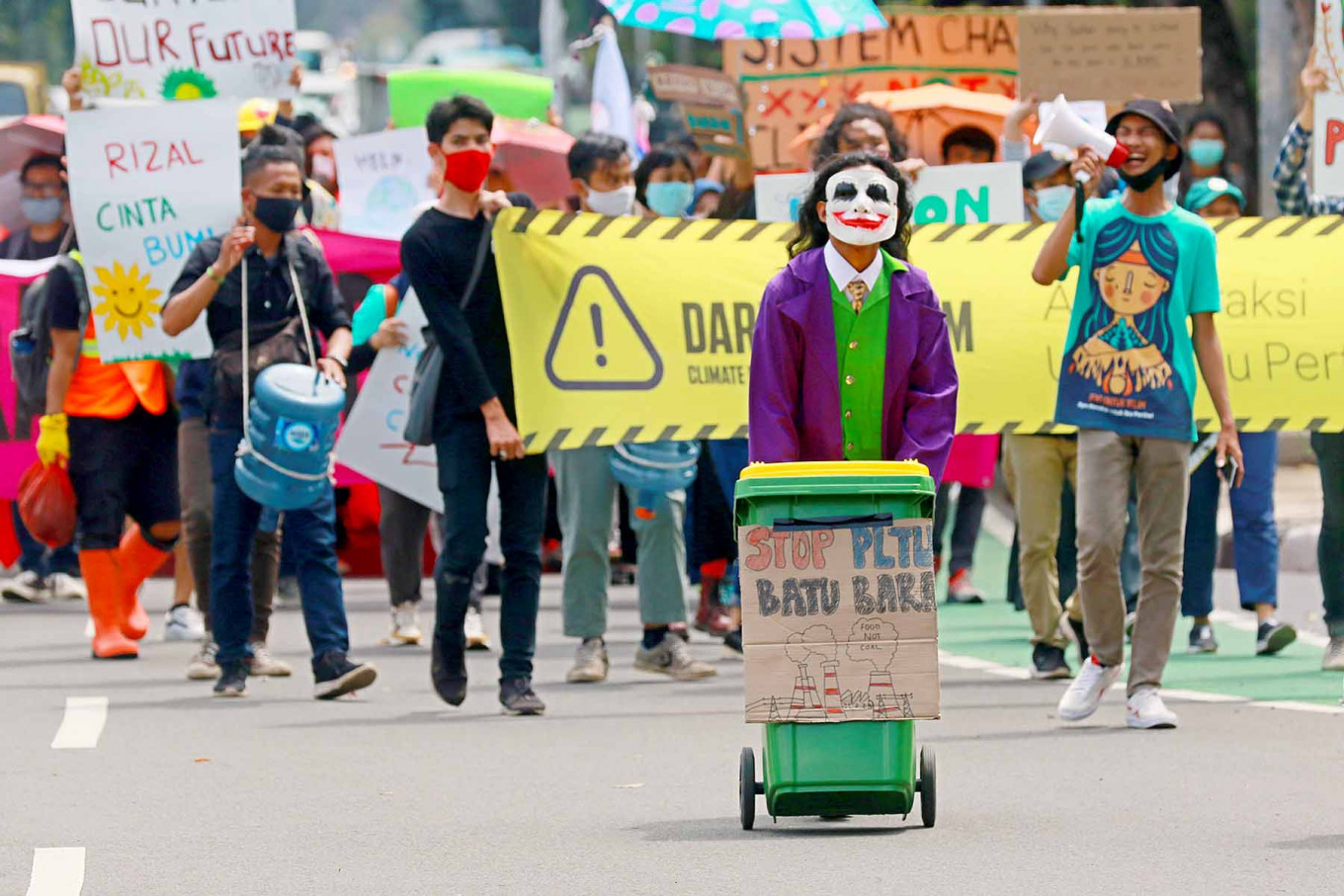Popular Reads
Top Results
Can't find what you're looking for?
View all search resultsPopular Reads
Top Results
Can't find what you're looking for?
View all search resultsClimate as growth driver
All the calamities and their devastating impacts have led countries to renew their pledges in the climate fight.
Change text size
Gift Premium Articles
to Anyone
While altering the history of our time, the COVID-19 pandemic has offered a new opportunity in the global climate fight.
As countries battle the coronavirus and ensuing economic recession that has seen millions face adversity, there is a widespread awareness that it is time to take stock of our ways: to live more healthily and consume less energy and reduce the impact of climate change.
During the pandemic, major disasters continued unabated. Fire still razed 3.5 million hectares in the California wildfires in the United States and over 2 million ha in the Amazon, and over 18.6 million ha in Australia.
From Germany to Australia, major floods have been caused by unpredictable climate patterns, causing disruption and taking lives.
All the calamities and their devastating impacts have led countries to renew their pledges in the climate fight. And this time, it looks like some major countries are already on board.
The European Union has agreed to a series of goals to mitigate climate change, including the bloc reaching net-zero emissions by 2050, and pledging to make them legally binding.
With President Joe Biden leading the administration, the US is making a return to the front lines of the fight against climate change after former president Donald Trump disengaged from the process.
China is also on its way. While trying to find a common ground with the US after a change of guard in Washington, China finds that climate cooperation is the only way that it can work with the US.
China, along with other countries, has agreed to join a climate summit hosted by Biden to celebrate Earth Day today.
Despite clinging to coal as its major source of energy, Indonesia has also made progress in renewable energy.
The contributions of green energy and coal to Indonesia's primary energy mix have grown proportionally larger over the past five years, pushing out oil while gas has stagnated, a trend that reflects Indonesia’s prioritization of energy security and reduced attention to sustainability.
Renewable energy accounted for 11.5 percent of the energy mix in 2020, more than double the figure in 2015, while coal grew from 27.9 percent to 38.7 percent – retaining the largest share – over the same period, government data show.
Indonesia has also prepared a strategy to meet a net-zero emissions target as mandated by the Paris Agreement.
To meet the Paris Agreement targets of keeping global temperature increases well below 2 degrees Celsius, or 1.5 degrees above pre-industrial levels, countries have prepared their strategies to cut emissions by half by 2030 and reach net-zero emissions in 2050.
The Indonesian government aims to reach net zero emissions by 2070, a little bit longer than stipulated in the global pact.
The rejuvenated ambition in the climate fight is exactly what we have been waiting for since the Paris Agreement, and hopefully no one will bail out again this time.










